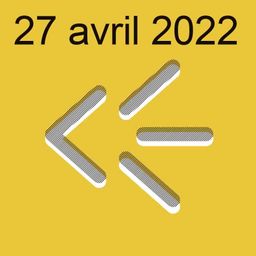The Role of Plurilingual Pedagogy in Affirming Immigrants’ Identities in Quebec
My Session Status
The Role of Plurilingual Pedagogy in Affirming Immigrants’ Identities in Quebec
Lana F. Zeaiter
McGill University
Immigrants account for over 80% of the Canadian population growth, of which 13.7% are settled in the province of Quebec (Statistics Canada, 2020). In spite of the government of Quebec’s investments in improving French programs to enhance immigrants’ integration, there are concerns about the efficacy of these programs as many of the immigrant registrants who complete the courses are still unable to use French effectively (Gouvernement du Québec, 2018). The root cause for these discouraging results is yet to be determined as the government of Quebec has not performed a program evaluation in years. However, previous research on various French programs in Quebec suggest that French education is problematic for multilingual or minoritized students and raise deep concerns in relation to immigrants’ sense of belonging to the Canadian and Quebecois community (Mady & Masson, 2018; Mady & Black, 2012). This may be particularly due to the lack of inclusion towards multilingual and minoritized students (Magnan & Lamarre, 2016), lack of sufficient teacher education on how to serve multilingual and multicultural students (Querrien, 2017) and overall lack of policy support for inclusion of immigrants (Mady & Black, 2012; Mady & Turnbull, 2010). Accordingly, the provision of language education that prepares immigrants to integrate in Quebecois society while taking into consideration their diverse linguistic and cultural backgrounds is crucial. This presentation aims to highlight plurilingual pedagogy (PP)as an alternative model of language teaching that holds significant potential regarding preserving and affirming immigrants’ identities. It nests on perceiving language learners as social agents who have proficiency in different languages and experiences in different cultures (CEFRCV; CoE, 2020). While a vast body of research highlights the positive impact of PP on student identity (e.g., Galante, 2020; Piccardo, 2019; Takeda, 2021), there is a lack of research on how it can support immigrant populations in Canada in general and Quebec to affirm their identities. Such a research orientation would result in creating a curriculum specifically tailored for immigrants and would inform language policies not only in Quebec, but potentially other provinces in Canada, and other countries with similar immigration influx.
References
Council of Europe (2001). Common European Framework of Reference for Languages. Cambridge University Press. https://rm.coe.int/1680459f97.
Council of Europe (2020). Common European Framework of Reference for Languages: Learning, Teaching, Assessment-Companion volume with new descriptors. Council of Europe. https://rm.coe.int/common-european-framework-of-reference-for-languages-learning-teaching/16809ea0d4
Galante, A. (2020). Plurilingual and pluricultural competence (PPC) scale: the inseparability of language and culture. International Journal of Multilingualism, https://doi.org/10.1080/14790718.2020.1753747
Gouvernement du Québec. (2018). Report of the Auditor General of Québec to the National Assembly for 2017-2018. https://www.vgq.qc.ca/Fichiers/Publications/rapport-annuel/2017-2018-Automne/en_Rapport2017-2018-Fall.pdf.
Mady, C. & Black, G. (2012). Access to French as a second official language programs in English-dominant Canada. Alberta Journal of Educational Research, 57(4), 498-501.
Mady, C. & Masson, M. (2018). Principals’ beliefs about language learning and inclusion of English language learners in Canadian elementary French immersion programs. Canadian Journal of Applied Linguistics/Revue Canadienne de linguistique appliquée, 21(1), 71-93. https://doi.org/10.7202/1050811ar
Mady, C. & Turnbull, M. (2010). Learning French as a second language – Reserved for anglophones? Canadian Journal of Educational Administration and Policy, (99), 1-23.
Magnan, M. O., & Lamarre, P. (2016). Diversité, frontières ethnolinguistiques et éducation au Québec et au Canada/Diversity, Ethnolinguistic Boundaries and Education in Québec and Canada. Minorités linguistiques et société/Linguistic Minorities and Society, (7), 4-17. https://doi.org/10.7202/1036414ar
Piccardo, E. (2019). “We are all (potential) plurilinguals”: Plurilingualism as an overarching, holistic concept. OLBI Journal, 10, 183-204. https://doi.org/10.18192/olbiwp.v10i0.3825
Querrien, D. (2017). Étudier l’influence d’une formation continue sur les croyances, les representations et les pratiques d’intervenants scolaires à l’égard des élèves allophones. Recherches qualitatives, 38(2), 1-141. https://doi.org/10.7202/1064933ar
Statistics Canada (2020). Number of Immigrants in Canada from 2000 to 2020. https://www.statista.com/statistics/443063/number-of-immigrants-in-canada/
Takeda, M. (2021). Building equality and social cohesion in Myanmar: Plurilingualism as a platform for establishing peace culture. In Social Transformations in India, Myanmar, and Thailand: 1, 29-50. https://doi.org/10.1007/978-981-15-9616-2_3

